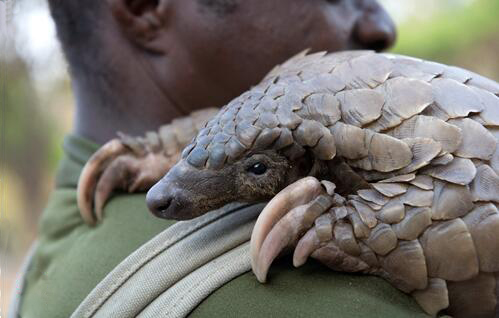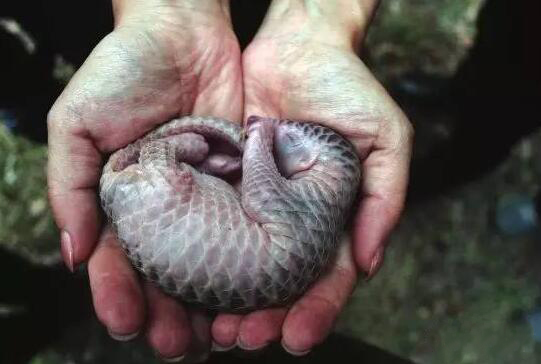Chinese people’s appetites have been guided by pragmatism, rather than food taboos. As Taiwanese academic Kung Peng-cheng puts it after exploring the eating habits and cultural restraints of Chinese people, "they eat almost anything."
Besides the reputation of the Cantonese for eating wild animals and the controversy over the Yulin dog meat festival in South China’s Guangxi Zhuang Autonomous Region in recent years, the pangolin, a strong-looking creature, has been revealed as a dish served in some restaurants, despite the fact that pangolin is on China’s list of endangered wild animals.

Earlier this month, a set of pictures taken in 2015 of what appears to be a lavish Chinese banquet were again circulated online. Some images show a cooked pangolin, served to a Chinese official from Guangxi. It aroused a public outcry, which prompted authorities to launch an investigation.
A few days later, the online posts of a woman, which date back to 2011 and 2012 and display images of various cooked wildlife including pangolin, snake and swan, were dug up by netizens. The posts were widely shared and the woman was branded the "Pangolin Princess." After the exposure, the "princess" was detained by police in her hometown of Shenzhen.
The Chinese people’s enthusiasm for eating wild animals like pangolin is rooted in the belief that they have unique healing properties. But the belief that virtually all rare animals are endowed with powerful medicinal effects may be too unrealistic.
So far, the meat of this nocturnal creature is considered a delicacy that can only be found on the tables of officials and wealthy people who have access to a luxurious and flippant lifestyle. To some extent, eating protected animals has become an indication of social status, given the rapid growth in China and the rise in demands of the country’s middle-class.
China banned the trade of pangolins more than 10 years ago to protect the rare species from extinction. But with no awareness of the law, some Chinese take pride in eating pangolins.

In the international community, China has long been scolded for its lack of regulations in tackling wildlife protection.
The Chinese people are known for their enthusiasm for wildlife products. According to media reports, more than 100,000 elephants in Africa have been killed in the past decade driven by the Chinese demand for ivory. The alleged donkey slaughter in South Africa also attracted anger from people around the world recently.
This week, Google’s Valentine’s Day doodles featured love-themed pangolins to raise awareness of the endangered species in the animal’s natural habitats, including China. This might serve a reminder to China of its difficult task ahead in preserving the pangolins.
Jiangsu Fangkun shelf manufacture Co. Ltd. here called on everyone to act together, to protect the pangolin, prohibit the illegal wildlife trade.Let's join hands and work together to protect the pangolin!

View More(Total0)Comment Lists